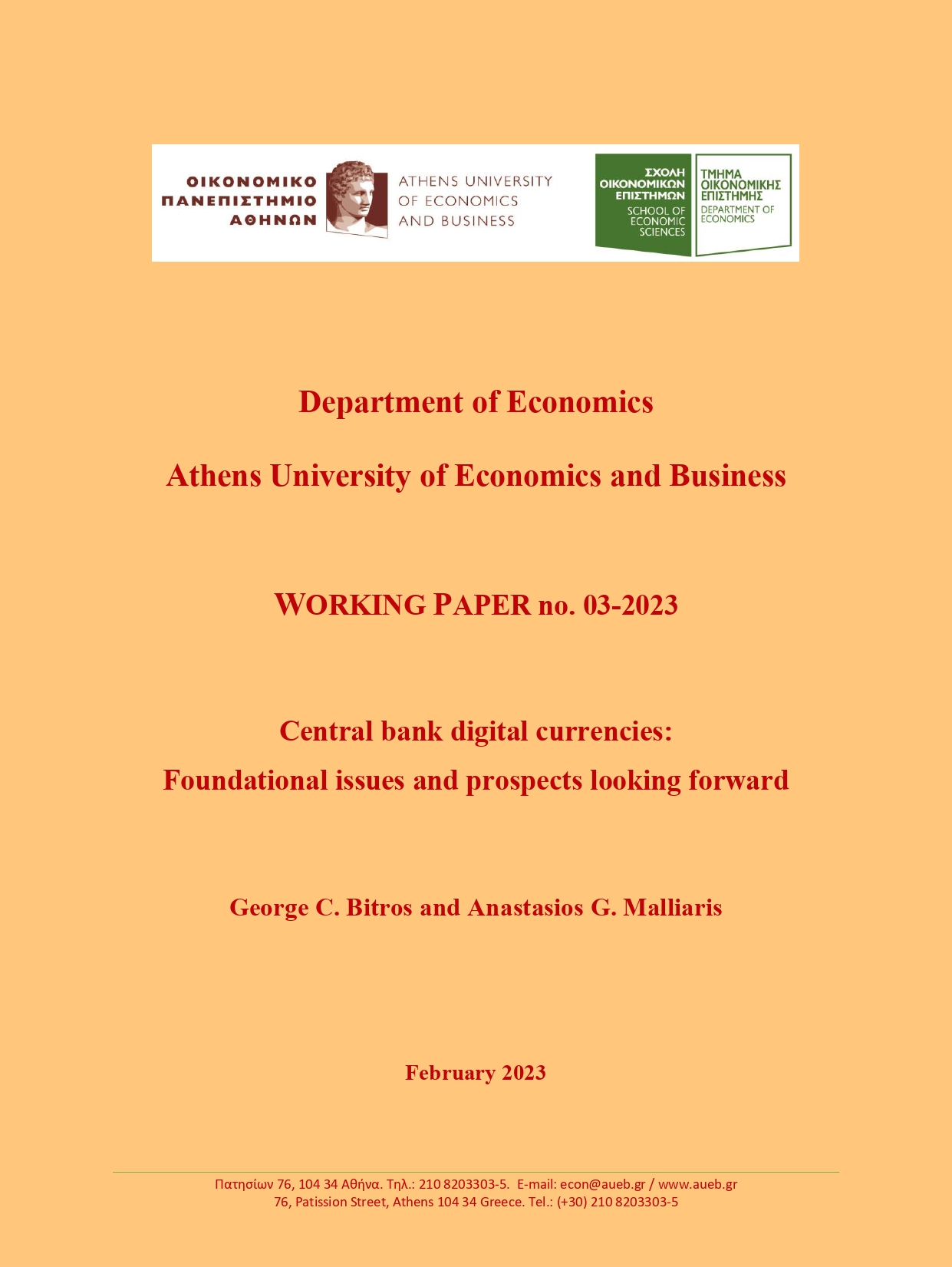Ανάρτηση Ερευνητικού Δοκιμίου no 03/23

Ερευνητικό Δοκίμιο no 03/23 με τίτλο "Central Bank Digital Currencies: Foundational Issues and Prospects Looking Forward" των Γεωργίου Κ. Μπήτρου και Αναστασίου Γ. Μάλλιαρη
Περίληψη
We identify the main pros and cons that drive the interest of central banks to issue a digital currency, we discuss certain fundamental issues that such a currency would raise for monetary policy, and we propose reforms that may be appropriate looking forward. While distant, it may not be farfetched to think of a future where, like in ancient Athens, money is produced privately and the “common” good, as reflected in democracy, free markets, and individual freedoms, is served by limiting the authority of the state in the domain of money to safeguarding competition and curbing illicit activities and tax evasion. However, until then, confronted with the challenges of cryptocurrencies, governments are likely to adopt hybrid systems consisting of two nodes: One that provides for a state-operated digital mint, supplying electronic money on a voluntary basis, and another rich in cryptocurrencies, all circulating parallel and in competition. In such a setup, let the government announce that all its transactions with the public will be reckoned and settled in its own electronic money, Bitcoins, and banknotes denominated thereof. As a result, government electronic money and Bitcoin will turn into reserve currencies. The demand for them will create strong incentives for financial institutions to issue notes denominated in them without government imposed convertibility obligations. And not the least, while the government would not issue a mandatory electronic currency, since such an initiative would undermine gravely democracy and citizen sovereignty, it would issue a voluntary one under conditions that would preserve its value.
O Γεώργιος Κ. Μπήτρος είναι Ομότιμος Καθηγητής του τμήματος Οικονομικής Επιστήμης του Οικονομικού Πανεπιστημίου Αθηνών και ο Αναστάσιος Γ. Μάλλιαρης είναι Walter F. Mullady Sr. Professor of Economics and Finance, Quinlan School of Business, Loyola University Chicago





 Πατησίων 76
Πατησίων 76 2108203 303
2108203 303
